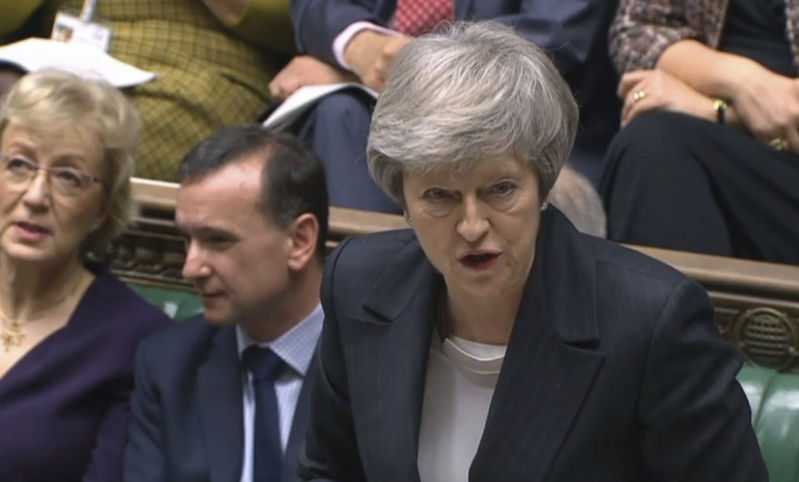U.K. Parliament rebukes govt over Brexit as make-or-break debate begins
07 December, 2018

Britain’s Parliament dealt Prime Minister Theresa May’s government two bruising defeats Tuesday, and that was before lawmakers began an epic debate that will decide the fate of May’s European Union divorce deal and her political career.
Opening five days of debate on the Brexit agreement, May said that since the British people voted in 2016 to leave the EU, it was the “duty of this Parliament to deliver on the result” of the referendum.
Despite her entreaties, the government appeared to be on a collision course with an increasingly assertive Parliament.
Minutes before May rose to speak, lawmakers delivered a historic rebuke, finding her Conservative government in contempt of Parliament for refusing to publish the advice it had received from the country’s top law officer about the Brexit deal.
The reprimand, while largely symbolic, marks the first time a British government has been found in contempt of Parliament. The 311-293 vote demonstrated the fragility of May’s government, which does not have a majority in Parliament.
Labour Party Brexit spokesman Keir Starmer called the contempt finding “a badge of shame.”
The government said that in light of the vote it would publish the advice from Attorney General Geoffrey Cox. He and other ministers also could face reprimands or suspension from Parliament.
The main thrust of Cox’s advice is already known — the government released a 43-page document about it Monday in a bid to fend off the contempt motion.
In another sign of the government’s weakness, lawmakers also passed an amendment giving Parliament more say over the government’s next steps if the assembly rejects the divorce deal in a vote set for Dec. 11.
Many lawmakers saw the government’s defeats as developments of huge significance — a tipping point in the EU saga.
“This feels like the fall of the ‘ancien regime,’” Stewart M. McDonald of the Scottish National Party said, using the French term once applied to the political system in pre-Revolution France.
The deal, endorsed last month by the 27 other EU leaders, lays out the terms of Britain’s departure from the bloc on March 29 and sets the framework for future relations with the EU. Rejecting it would leave Britain facing the prospect of a chaotic “no-deal” Brexit, but May’s chances of winning majority backing for the deal appear slim.
Politicians on both sides of Britain’s EU membership debate oppose the agreement — pro-Brexit legislators because it keeps Britain bound closely to the EU, and pro-EU politicians because it erects barriers between Britain and its biggest trading partner.
“The numbers in the Houses of Parliament look pretty formidable for Theresa May,” said Alan Wager, a research associate at the U.K. in a Changing Europe think tank. “Over 100 Conservative MPs have said they are not going to back the deal, the Labour Party have said they are not going to back the deal. So it looks like the deal won’t pass next week.”
May acknowledged the proposed deal her government negotiated and approved was not perfect, but called it “an honorable compromise.”
“We should not let the search for the perfect Brexit prevent a good Brexit,” she said.
Leaving the EU without a deal would end more than 40 years of free trade and disrupt the flow of goods and services between Britain and the EU. The Bank of England says a no-deal Brexit could plunge Britain into a severe recession, with the value of the pound falling by 25 percent as unemployment and inflation soared.
Pro-EU lawmakers said Tuesday they had made the prospect of a “no-deal” Brexit less likely by securing the amendment giving Parliament more power to guide the government’s next steps if the deal is rejected.
TAG(s):
